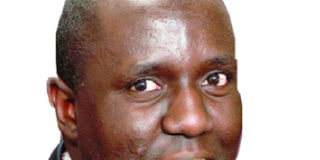God and Mugabe: Another look at Zimbabwe’s legend

What you need to know:
Moral compass. Did Mugabe have a moral compass? Yes, he was a Roman Catholic.
In 2013, Robert Gabriel Mugabe aged 90, started a fresh presidential term due to run until 2018. He promised another run when he would tip the triple digits. In fact, the old man’s margin of victory that year around 62 per cent was much higher than his prior competition elections in 2002 and 2008 when he was widely believed to have lost or at a minimum failed to clear the 50 per cent constitutional hurdle to be declared president in the first round.
Mugabe’s long ascent to power, first as freedom fighter and later political prisoner for 11 years, followed a familiar path that was used by the British to soften up his friend, rival and sometimes nemesis Nelson Mandela, only that the old man Mandela did far more time 27 years in total, almost his entire adult life. Mugabe was not the chosen hero of Zimbabwe’s independence. Actually, it is widely believed that the British used a common tactic to lay a caveat on Zimbabwe’s future in very much the same way as it happened in India, Pakistan, Kenya, Ghana, Nigeria, Uganda, etc. The British colonial office never willingly gave up the colonies in which to their great credit, they had assembled from scratch into viable nation states although the net outflow of natural resources to the metropolitan sowed permanent seeds of instability.
The British sense of cautious rapport with their former colonies informed what a benign foreign policy in the 1960s and 1970s. The former Empire was dealing with a financial Armageddon that battered its finances from the colonial wars of expansion in the 19th Century and two world wars that brought Britain to her knees. Britain was a supplicant in its relationship with the United States who picked out prize jewels and forced her to grant independence.
In Southern Africa and Kenya, there was pushback, the background to a more concerted effort to capture the most prized possession from the Africans, land. In 1980, the British under Ms Margaret Thatcher, offered independence to Mugabe on condition that he goes slow on land redistribution in return for a special status for the White settlers, who under the 1980 Constitution, were allocated 20 per cent seats in Parliament.
Zimbabwe’s parliamentary chamber lacks the seriousness and studiousness of other African legislatures. Mugabe used his Zimbabwe African National Union (Zanu) party majority to appoint chiefs, and nominated MPs to pad his majority against Zimbabwe African People’s Union (ZAPU). The fallout begun when Mugabe after implementing dozens of IMF-World Bank policies in the 1980s, which ravaged many African countries, tried to keep the British to their promises for compensation. The British under both Thatcher and later Tony Blair failed to keep their promises. An internal war and sabotage by South Africa that sought to punish frontier states for supporting the ANC besieged Zimbabwe before ill-thought efforts at consolidating power drove ZANU (which later merged with ZAPU) into crony capitalism grabbing white farms. Unforgiving, drought in the 1990s scorched the countryside setting up Mugabe for his first real contests with the urban opposition funded by settlers eager to return to privilege.
Did Mugabe have a moral compass? Yes, he was a Roman Catholic closely tied to left wing liberation ideology [very close to communism], twice married in Church and implicitly with their support. His first wife Sally Mugabe was a Ghanaian. He was loudly dogmatic outspoken in all sorts of views, something not associated with his peers Julius Nyerere, Jomo Kenyatta, Mwai Kibaki. Even their successors John Magufuli, Uhuru Kenyatta have not behaved much differently.
What was the moral compass of the ruthlessness that accompanied scorched earth policies sometimes multiplied by Western propaganda? These questions remain and a re-evaluation of Mugabe may be overdue by history.
Mr Ssemogerere is an Attorney-at-Law and an Advocate.


